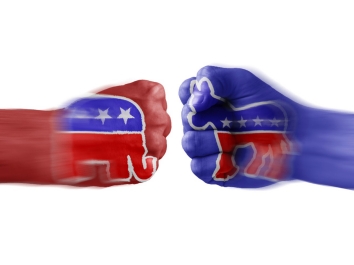The public does not trust corporate media science journalism, that is why science journalism jobs in newspapers have disappeared even as science has become more important than ever. To get the facts right, the public now goes to targeted outlets, like Science 2.0, the American Council on Science and Health, and similar groups that are politically agnostic and scientifically credible.
But a new Pew study shows that though the public goes to science sites to get the facts right, most, 54 percent, still get it from corporate media first. Even though they know it's not very good. That leaves a lot of room for scientists who want to write. Their survey finds that 36 percent of Americans get science news at least a few times per week. That works out to be an audience of 100 million, a terrific number of people any publication would want.
So why doesn't corporate media take advantage of that? They can't seem to escape the politics. Though President Trump has, with his picks for CDC, FDA, HHS and EPA compiled arguably the best suite of science advisors of the last 25 years, corporate media can't take off their partisan blinders. Dr. Scott Gottlieb has set a record for new drug approvals, Dr. Tom Price has reduced ACA paperwork that was making fellow physicians despondent, while Scott Pruitt at EPA already jettisoned two ridiculous woo-based rules, the Clean Water Act and claims about small micron particulate matter (PM2.5 causing deaths, that read like they were written by Natural Resources Defense Council. (1)
But how will the public know all that? Instead of getting non-partisan fact-checking, 54 percent still get their news from outlets we know are engaging in "churnalism" - rewriting a press release they got from a university PR department. Some pick the science to match the politics of their readers. When New York Times published an article saying we shouldn't be dogmatic about climate science, there was nationwide outrage, with thousands threatening to cancel their subscriptions. When New York Times published an entire series of hit pieces on agricultural science by Danny Hakim, with text copied-and-pasted from organic food trade groups, the only outrage was from scientists. It's a recurring problem for that top-five U.S. newspaper that they are the home of anti-science beliefs about chemophobia, alternative medicine and food. They are being sued for libel by Professor Kevin Folta.
There is some good news, at least when it comes to this non-stop fight:

Source
Regular, informed consumers are essentially identical in number among Republicans and Democrats, so claims that one party or the other is really the Party of Science are again debunked. The survey also found that 28 percent of people know corporate media science coverage is not very good.
So only 72 percent more to go.
(1) Well, some were. And Sierra Club also.




Comments